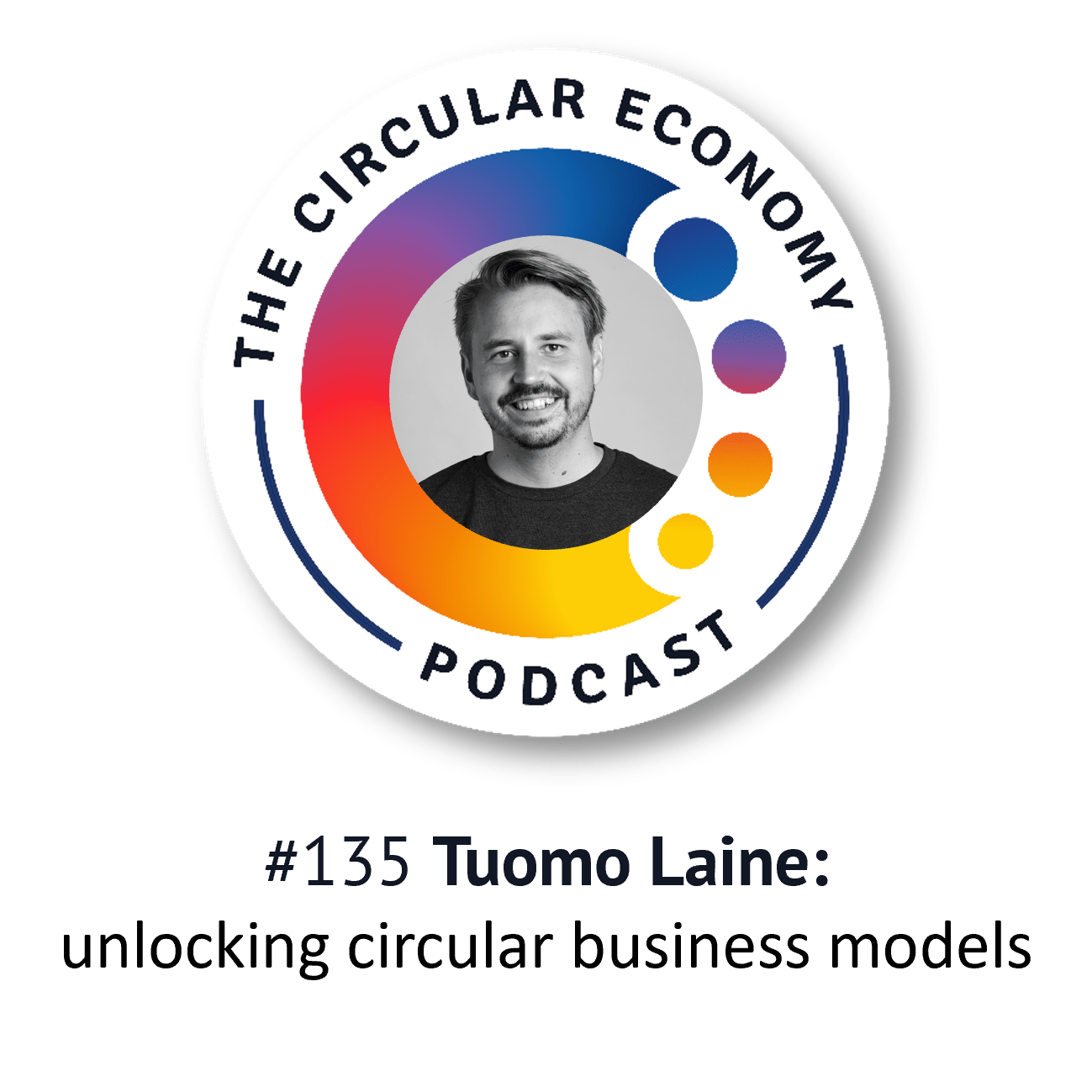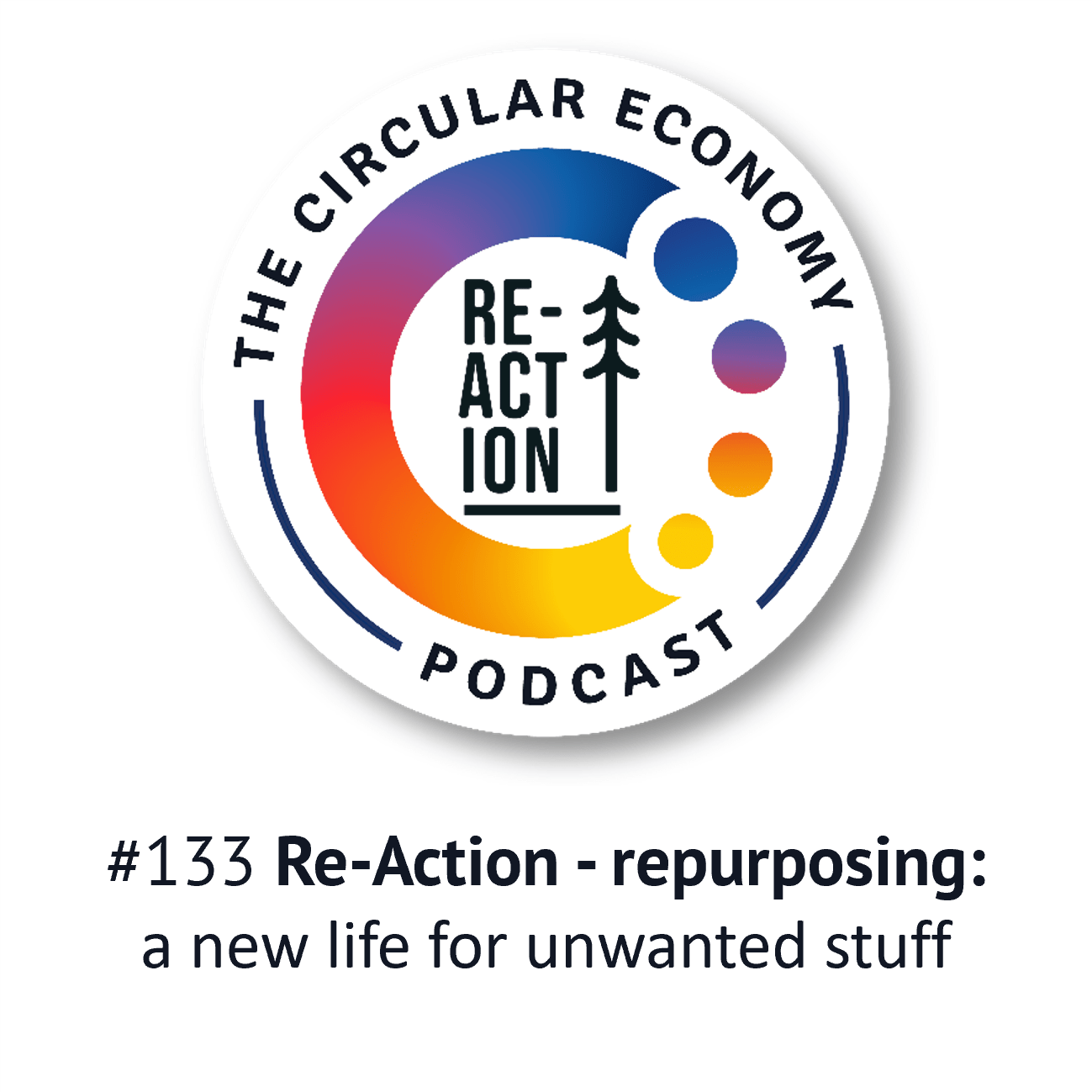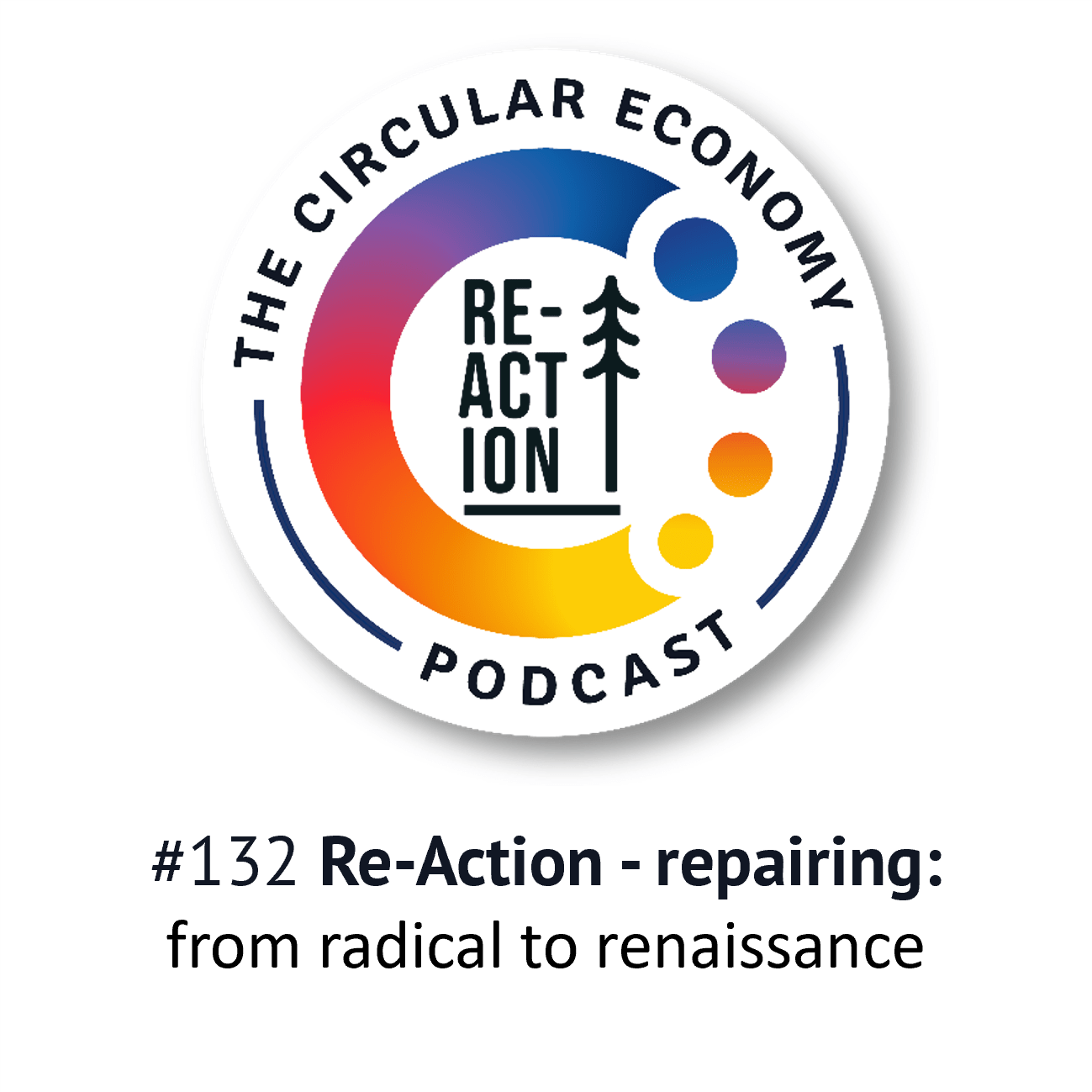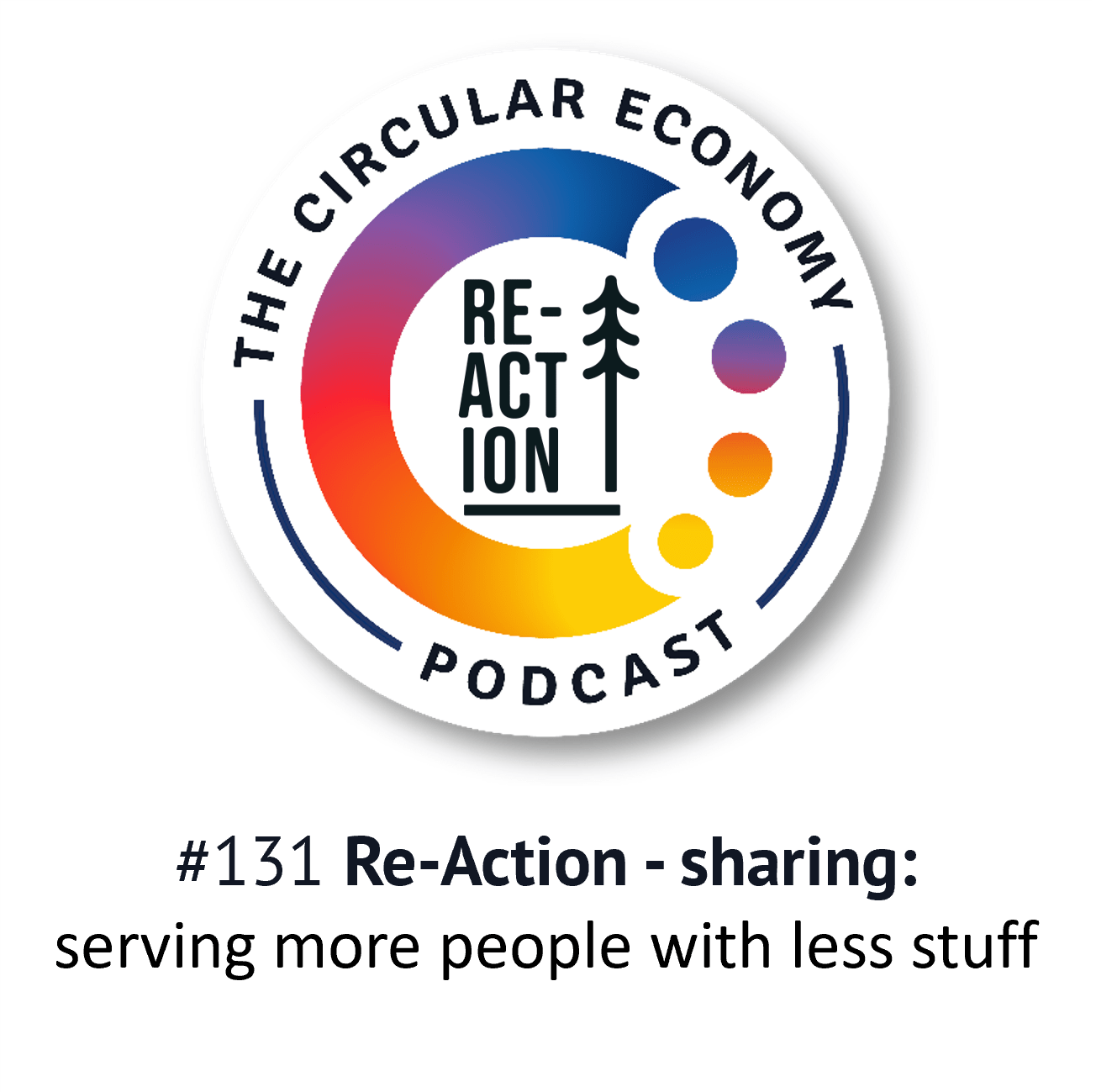Podcast: Play in new window | Download
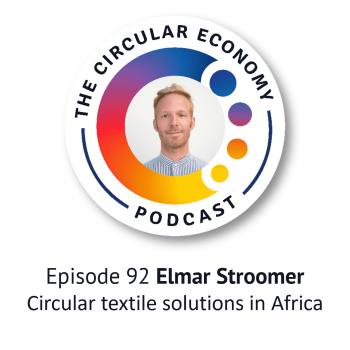
Catherine Weetman is in conversation with Elmar Stroomer, the founder of Africa Collect Textiles (ACT). Africa Collect Textiles does exactly that – collecting used textiles across Africa, for reuse, recycling and upcycling.
Elmar Stroomer has a strong background in the circular economy and design, and lived in Kenya and Uganda between 2012 and 2017 to get Africa Collect Textiles up and running. Now, Elmar is working full time on the expansion of ACT in Kenya and Nigeria.
ACT aims to develop solutions to end the textile waste issues across Africa. It distributes free and affordable clothing to underprivileged communities, and currently has over 40 collection points in Nairobi and Lagos for used textiles. It provides employment to more than 50 people, who help collect, sort and upcycle fashion waste, used uniforms and off-cuts, creating products such as rugs, backpacks, toys and much more.
On top of this, for every kilogram of used textiles it recycles, Africa Collect Textiles (ACT) donates 10 Kenyan shillings to charity. We hear about how fashion waste imported from the global north has undermined the existing textile and clothing sector in Kenya, and why Elmar decided to create a circular economy for locally produced textiles.
Elmar tells us about some of the circular initiatives that ACT has set up, including repurposing workshops, services for resellers that overcome some of the major issues with the system for reselling imported end-of-use textiles, and innovative ways of repurposing end-of-life clothing for local businesses.
Podcast host Catherine Weetman is a circular economy business advisor, workshop facilitator, speaker and writer. Her award-winning book: A Circular Economy Handbook: How to Build a More Resilient, Competitive and Sustainable Business includes lots of practical examples and tips on getting started. Catherine founded Rethink Global in 2013, to help businesses use circular, sustainable approaches to build a better business (and a better world).
Stay in touch for free insights and updates…
Read on for a summary of the podcast and links to the people, organisations and other resources we mention.
Don’t forget, you can subscribe to the podcast series on iTunes, Google Podcasts, PlayerFM, Spotify, TuneIn, or search for “circular economy” in your favourite podcast app. Stay in touch to get free insights and updates, direct to your inbox…
You can also use our interactive, searchable podcast index to find episodes by sector, by region or by circular strategy. Plus, there is now a regular Circular Economy Podcast newsletter, so you get the latest episode show notes and links delivered to your inbox on Sunday morning, each fortnight. The newsletter includes a link to the episode page on our website, with an audio player. You can subscribe by clicking this link to update your preferences.
Links we mention in the episode:
- A Circular Economy Handbook: How to Build a More Resilient, Competitive and Sustainable Business – buy from any good bookseller, or direct from the publisher Kogan Page, which ships worldwide (free shipping to UK and US) and you can use discount code CIRCL20 to get 20% off. It’s available in paperback, ebook and Kindle. If you buy it from online sources, make sure you choose the new edition with an orange cover!
- Sign up to get the podcast player and shownotes for each new episode emailed to your inbox
- Website https://africacollecttextiles.com/
- Instagram – https://www.instagram.com/africa.collect.textiles/?hl=en@africa.collect.textiles
- Facebook – https://www.facebook.com/AfricaCollectTextiles@AfricaCollectTextiles
- Twitter – https://twitter.com/AfricaCollect @AfricaCollect
- Linkedin – https://www.linkedin.com/company/africa-collect-textiles/ @Africa Collect Textiles
- Greenpeace Poisoned Gifts report https://www.greenpeace.org/international/publication/53355/poisoned-gifts-report-fast-fashion-textile-waste-disguised-as-second-hand-clothes-exported-to-east-africa/
- Recommended guests: NKWO upcycling and training https://www.nkwo.design/ The OR Foundation https://theor.org/mission Iamisigo https://www.instagram.com/iamisigo/
About Elmar Stroomer
Elmar Stroomer finished his Masters in Strategic Product Design, at the Technical University of Delft in 2007. He has experience in product development and has worked with TUDelft, ENVIU and KICI (now Sympany) on different textile sorting and recycling projects. From 2012 until 2017 Elmar lived in Kenya and Uganda to erect Africa Collect Textiles (ACT), as well as a design office for Design without Borders.
From 2017 until 2019 Elmar worked for design studio REGGS and managed clients like Heineken and AMD. In 2018 Elmar won the Circular Design Award from Rabobank and Desko for a 3D woven chaise longue from recycled denim. Since 2020 Elmar is working full time on the expansion of ACT in Kenya and Nigeria.
Currently ACT has over 40 collection points in Nairobi and Lagos for used textiles, providing over 50 people with employment in the collection, sorting and upcycling fashion waste, used uniforms and off-cuts in products such as rugs, backpacks, toys and much more.
ACT collects used textiles for resue and recycling. Our efforts are focused on Africa, our motherland. She is a nurturing, loving, and a caring provider. We recognize that she deserves better. We aim to find solutions to end textile waste that is causing harm to our environment and people.
ACT is composed of ordinary people with extraordinary ideas on how to divert textiles from landfills. We enable a circular economy for textiles, whereby we lower the footprint of the fashion industry while creating new jobs.
We distribute free and affordable clothing to underprivileged communities and we recycle materials in brand new items. Last, but not least, we support charity with Ksh 10.- for every kilogram of used textiles we recycle!
Interview Transcript
Click here to open the transcript…
Want to dig deeper?
Why not buy Catherine’s award-winning book, A Circular Economy Handbook: How to Build a More Resilient, Competitive and Sustainable Business. This comprehensive guide uses a bottom-up, practical approach, and includes hundreds of real examples from around the world, to help you really ‘get’ the circular economy. Even better, you’ll be inspired with ideas to make your own business more competitive, resilient and sustainable.
Please let us know what you think of the podcast – and we’d love it if you could leave us a review on iTunes, or wherever you find your podcasts. Or send us an email…
Podcast music
Thanks to Belinda O’Hooley and Heidi Tidow, otherwise known as the brilliant, inventive and generous folk duo, O’Hooley & Tidow for allowing me to use the instrumentals from the live version of Summat’s Brewin’ as music for the podcast. You can find the whole track (inspired by the Copper Family song “Oh Good Ale”) on their album, also called Summat’s Brewin’. Or, follow them on Twitter.
